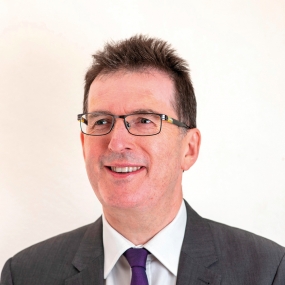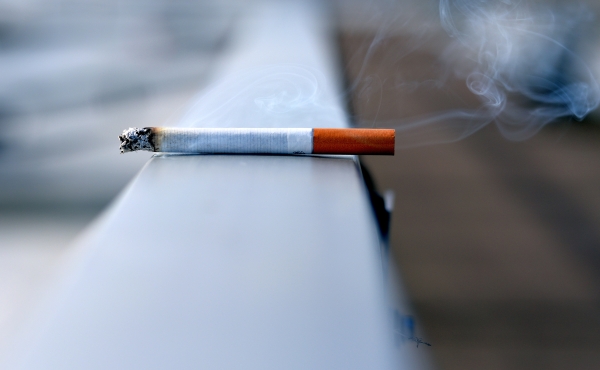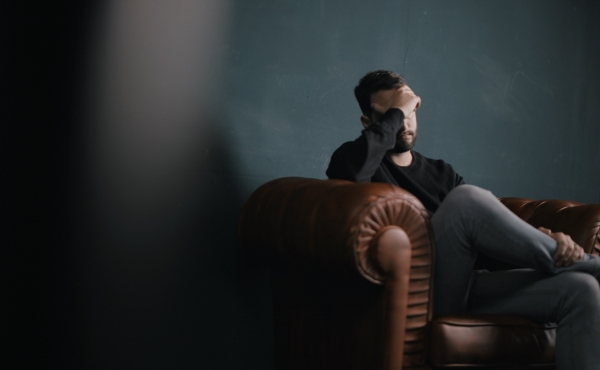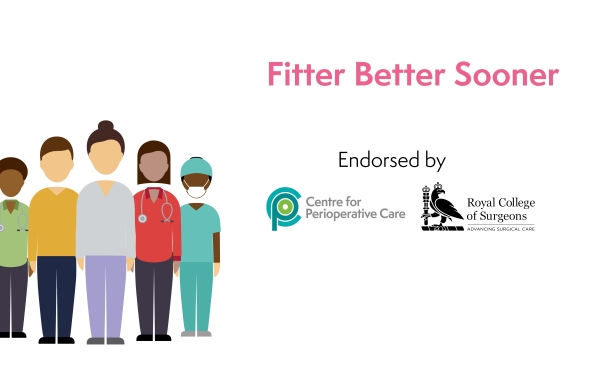We may all become patients sooner than we think: Part 1

Lawrence Mudford has had a 38-year healthcare career working as a dentist and dental educator within both primary and secondary care. This has included serving on the board of the Faculty of General Dental Practice and as a member of the General Dental Council.
Part 1: Expecting the unexpected
At the Centre for Perioperative Care, we recognise the strong links that naturally exist between improved recovery following surgery and recovery from the current virus. In a nutshell, fitter patients are able to improve their health and activity levels more quickly following a medical intervention - be it surgery or COVID-19.
I hope this series of three blogs gives food for thought on how we can prepare our bodies and minds in the event of contracting COVID-19, as a preventive measure.
As a cancer patient, I was so fortunate to have had sound advice from that Macmillan nurse when I was originally diagnosed with cancer. She gave me three areas that I could work on before I underwent surgery - physical wellbeing, lifestyle choices and mental health strengthening.
The same three hold up as sound preventive measures as we wait to see whether we will become COVID-19 patients, sooner than we expected. This first blog will explore the importance of physical wellbeing.
My experience
When I entered the consultant’s room, I was met with the sight of two people. The first person, the consultant Urologist said that the tests had confirmed I had a stage 2 prostate cancer and that the second person, the Macmillan nurse, would spend additional time with me and answer my questions.
That is all I really remember about the appointment as I moved from a career 'in' healthcare, to a new experience of being a 'patient'.
I suppose, looking back, that my experience of receiving a medical diagnosis is the same for many. We are essentially patients when we are born. Then we become general public. And at different stages of our lives, we dip into the world of becoming patients again.
Or at least, that was until COVID-19 became a worldwide health issue. Now we are all expecting the unexpected. We see that some people have mild symptoms and others do much worse. It helps me feel in control to try to keep myself as healthy as possible.
So how can the experiences that I had in my preparation to major surgery, benefit others as they prepare, both mentally and physically, for the possibility of becoming a patient with Coronavirus?
I believe there are strong parallels between the benefits found in the RCoA guidance 'Fitter Better Sooner' to prepare for surgery, and changing our daily lifestyle choices to be in better shape, should we contract COVID-19. One of the best suggestions for me, in terms of having a coping strategy following my diagnosis, was from the Macmillan nurse, who gave me three areas that I could work on before I underwent surgery: physical wellbeing, lifestyle choices and mental health strengthening. The same three hold up as preventive measures for the Coronavirus.
Here I will share something from the first of these areas and in subsequent blogs, look at the last two of lifestyle changes and mental health resilience.
Our heart and lungs have to work harder after an operation to help the body to heal. In the same way, we know that COVID-19 has a marked detrimental effect on the respiratory system. So brisk walking, swimming, cycling, gardening are all helpful. I found that it's good to do any activity which makes you feel out of breath at least three times per week
What I did (and what I have tried to continue doing!)
We all have the following dilemma. In our minds, we see ourselves as fit, younger versions of ourselves. In our reality, the body often lags behind the mind! When I received my diagnosis, I decided to take the advice to improve my fitness and struck out to walk for a few miles on day one. The goal was impressive, but the outcome was more pedestrian. Lesson to self: set a lower distance goal, do not start by climbing up a long slope and do not set off at a cracking pace. The result, a deflating walk back home after a short circular tour around the block.
Our heart and lungs have to work harder after an operation to help the body to heal. In the same way, we know that COVID-19 has a marked detrimental effect on the respiratory system. So brisk walking, swimming, cycling, gardening are all helpful. I found that it's good to do any activity which makes you feel out of breath at least three times per week. Activities that improve your strength and balance will also be useful for your recovery from respiratory viruses in general, but essential with the current outbreak - and the various 'keep fit' videos and apps that have sprung up online will certainly benefit many.
So I started again, walking on alternate days, at a slower, steady rate gradually increasing timings from 10mins to 12, 15, 18, 20 till I was up to 30 minutes. And I started on a flatter surface! And I soon recognised that routine was helpful, building exercise into my normal day activities. I stopped using the lift and made best friends with the stairs. The car was only used for a local journey where I had to walk for more than 20 minutes. And I started to learn breathing exercises.
What are the added benefits from being physically fitter, in preparation to the unexpected experience of being a COVID-19 patient?
A major benefit is to mind and body, especially at this time when we face so many challenges in life that seemingly are endless. Medical studies have continually shown that resilience, the ability to cope under pressure and press on are all linked to an exercise routine. A health professional at the Centre for Perioperative Care has recently published this: "Getting outside for a walk gets your heart rate up, you’ll get endorphins from the exercise and boost serotonin in your brain, so you feel better, you feel more in control. You’re trying to do something to feel better.” Imagine how many additional endorphins you can generate from running rather than walking!
But there are other positive benefits as well - a reduction in blood pressure and cholesterol, risk of type 2 Diabetes, strengthening of bones, muscles and joints and weight management.
Keep at it
Finally, a quick word about keeping exercise going as a natural part of life following recovery. Find something you enjoy and keep at it. For me it has led to a progression from walking to running!
Taking up running was my daughter’s fault (for which I am very grateful!). Having watched her complete the Couch to 5K programme and start running regularly, I joined her middle of last year at my first ParkRun (note to self: it would have been good to also have done the course myself to build up stamina) and found to my amazement that I completed the run at Seaford, East Sussex and experienced the euphoria of running with a wonderful bunch of enthusiastic people and an incredible gang of volunteers who gave up their Saturday mornings to support people like me to run in the fresh air. And it has become an addictive habit!
Nobody can predict who will be infected by COVID-19. But rather than feeling out of control, we can use the additional time we now have as we stay at home, to build exercise and physical activity into our routines - and take ownership of one aspect of our lives.
Runners photo by Tomasz Woźniak on Unsplash.




